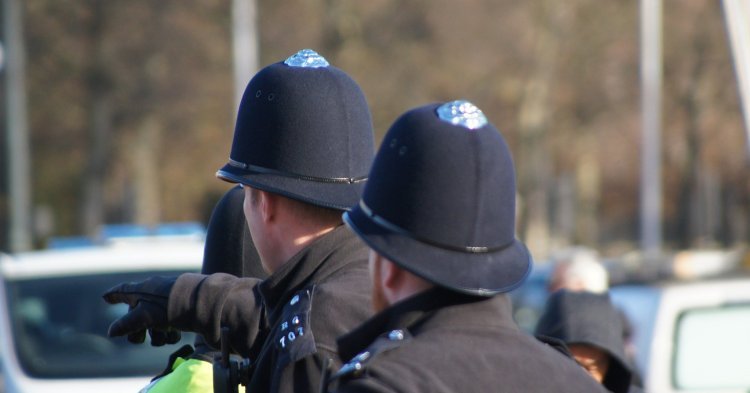One thing that has remained relatively certain since the referendum result, however, is that the end of free movement for EU migrants is imminent. Not only is this set to be detrimental to much of the UK’s industry, that heavily depends on European talent, but it also solidifies a growing hostility towards migrants. This hostility has been rooted in a combination of governmental policy and public opinion, which has combined to create various cases of racism, discrimination and inequalities, which have spiked since the referendum result.
It is not only migrants who have taken the brunt of this. British Black, Asian and Minority Ethnic (BAME) individuals continue to unjustly warrant institutionalised scepticism of not ‘belonging’ in the UK, with many being profiled and targeted by policy-enforcers and members of the public.
Earlier this month, Johnson announced a series of crime-reduction proposals to take effect in England and Wales in the following few years. His pledge includes hiring an extra 20,000 police officers by 2022, increasing the overall capacity of prisons by 10,000 by the ‘mid-2020’s’ and spending £100m on increased prison security.
Yet, it is his plan to roll out an extension on the UK’s current Stop-and-Search procedures that is the most divisive, given the policy’s proven reputation in generating practices of racial profiling and racially-motivated violence by police officers in the UK and across the Atlantic.
The link between ‘stop and search’ and race
‘Stop and search’ refers to the policing practice of stopping and searching a person for weapons, drugs or other prohibited items. With the decision of stopping someone based on an individual officer’s snap visual judgment, it is unsurprising that the racial stereotypes and prejudices held by some police officers are projected onto their decisions to target certain individuals. In fact, in 2017-18, black individuals were 9.5 times more likely to be stopped and searched for drugs than their white counterparts, with young, black men overwhelmingly being the main target.
Yet, these stark racial disparities come after a time when stop-and-search had significantly decreased for this very reason, falling by 80% between 2009-10 and 2017-18 after then-Home Secretary Theresa May declared it was ‘unfair, especially to young black men’. However, a decrease in stop-and-searches – a figure of 303, 845 in March 2017 was the lowest recorded – did not solve these instances of racial profiling, with many arguing that the introduction of May’s ‘hostile environment’ policy in 2013 only exacerbated targeted hostility towards black and minority ethnic individuals.
One report has presented analysis demonstrating the unequal treatment black people endure if they are stopped. Whilst arrests for drugs fell by 52% for white people between 2010-2011 and 2016-17, they did not fall at all for black individuals. Dr Rebekah Delsol, co-author of the report, stated that ‘“Forces that cannot use stop and search fairly and effectively should have the powers taken away from them until they can show that they can be trusted to use these powers appropriately.”
Increasing stop-and-search powers
Yet, it seems the Prime Minister is not so troubled with the policy’s known issues. Instead, Boris Johnson plans to give police forces more power by allowing them to carry out stop-and-searches in designated areas without authorisation from a senior officer.
Currently, Section 60 of the Criminal Justice and Public Order Act 1994 enables officers to search anyone in a designated area if they believe they will cause harm, even if they do not have reasonable grounds to suspect they are carrying a weapon. Last year, Section 60 was used at Notting Hill Carnival in London, a festival which celebrates Caribbean heritage and is a significant event for the city’s Black British community.
Once Johnson’s proposals are put into practice, officers will be able to search anyone if they simply believe they ‘may’ cause harm. Instances of racial profiling and discrimination and harsh treatment will no doubt increase once individual officers can make unchecked snap decisions, allowing the boundaries for which someone can be targeted to become more blurred. Whether or not the stop-and-search procedure actually works is another highly disputed issue. Labour’s shadow home secretary Diane Abbott argues it does not decrease levels of crime, and even the Home Office’s own analysis of it has found that it has had “no discernible impact on reducing crime”.
The bigger picture
Stop-and-search is just one of the many institutionally racist procedures that continue to unjustly target BAME individuals in Britain. With this year’s UN report finding examples of racism and racial inequality across almost every UK sector and area of public life, British and migrant ethnic minority communities are isolated within British society, untrusting of the very institutions that are supposed to protect them. For example, domestic violence continues to be a hugely dangerous issue for BAME and migrant women, as they were statistically likely to stay quiet for 1.5 times longer when in an abusive relationship in 2018.
Evidence submitted by women’s rights campaigners Southall Black Sisters and Liberty exposed a shocking reason as to why: police forces across England and Wales had been reporting migrant domestic violence victims to immigration officials during the same year, showing a complete disregard for a woman’s safety – and life – over her immigration status.
Brexit and austerity measures are two major catalysts for a rise in racial inequality, with government spending cuts affecting BAME households the most. In 2016, the Government carried out a Race Disparity Audit which found BAME households are twice as likely to live in persistent poverty than white households.
Additionally, the UK’s ‘hostile environment’ policy has seen immigration application fees rise sharply: it costs an individual £2,389 to apply for Indefinite Leave to Remain and another £1,330 to apply for British citizenship, in addition to paying income tax, visa applications for dependant relatives, extension fees and additional NHS health surcharges. With the Home Office making an 800% profit on applications, an unwelcoming message certainly seems evident here.
With both overtly racist procedures, and institutionalised discrimination creating racial divisions across the country, stop-and-search is an unjust step backwards from fixing equal treatment for BAME communities in the UK. Johnson’s crime-reduction proposals are tactics of alienation and exclusion, leaving BAME British and migrant communities to fall through the cracks of an untrusting, unsupportive and unwelcoming system.


Follow the comments: |
|
